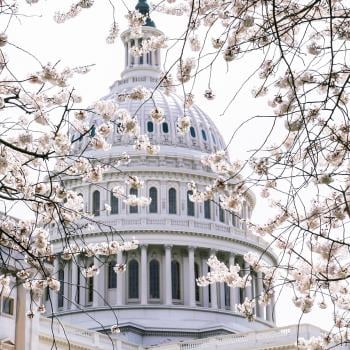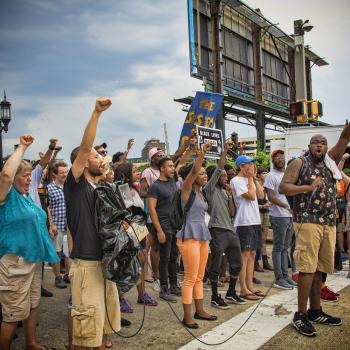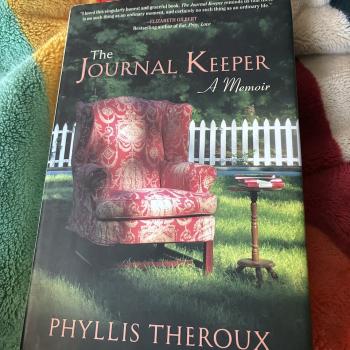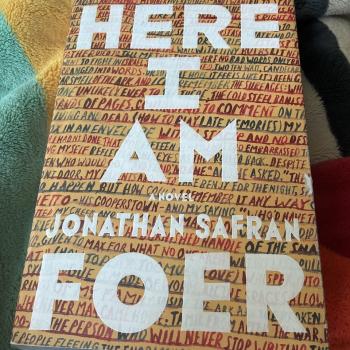Over spring break, my family hopped in the car to drive a couple hours’ south to Carmel Valley. We would sleep in a tent! We would cook fires over the camp stove! We would bond as a family as only those who voluntarily sleep under thin sheath of nylon in the middle of the forest do!
At one point, my younger son and I sat near the campfire, killing time. Although we could have passed the hours by swimming in the frigid, unheated pool, hiking in the woods, or shooting hoops at the nearby basketball hoop, we decided to instead have a gargling contest.
I would engage with my son in one of the greatest games and favorite memories of my church camp days, which is, perhaps, not all that different from the camping I do nowadays. We would hold our very own Gargling Olympics, right in the middle of site 26.
There we were, in the middle of the forest, humming “Jingle Bells” while gargling water at the same time. I took a large glug of water, several glugs, perhaps, and began to gargle the famous Christmas song. Water dribbled down my chin. The song, which Michael very well may play at some point during today’s service, sounded less like the merry sound of jingling bells and more like the heinous sound of a cat coughing up a waterlogged hairball.
But when Theo, my son, began to gargle, he mindfully took a very small drink of water – a gulp I believed wasn’t enough because his rendition of the holiday tune sounded quite melodious indeed.
When push came to shove, we could only declare one of us the winner, to which he won the proverbial crown.
I’M KING OF THE GARGLING OLYMPICS! He shouted into a grove of eucalyptus trees and toward a half a dozen campsites that had no clue about this newfound glory.
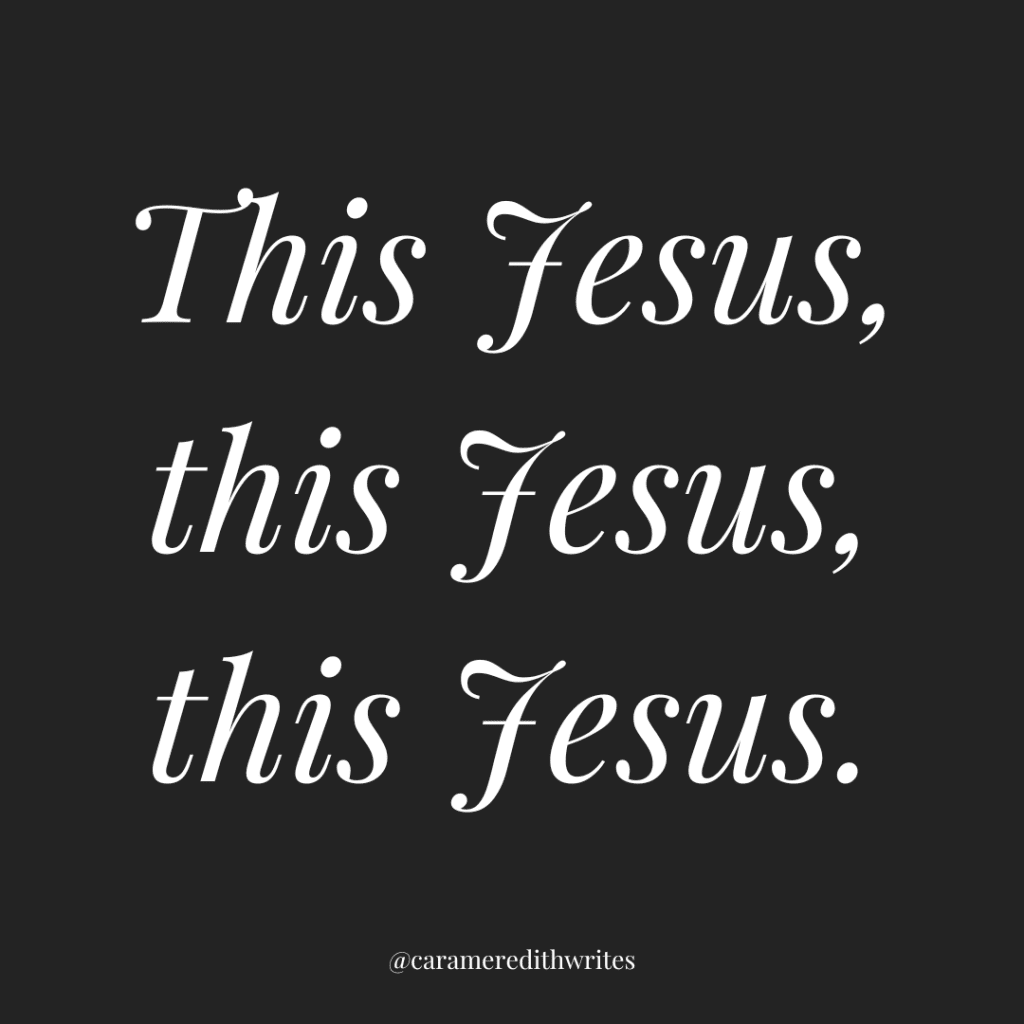
And I tell you this story, not so we can hold our own Gargling Olympics in Duncan Hall after the service, but because of the singular declarations found in this week’s lectionary passages.
In the church calendar, today is the 4th Sunday of Easter. Following the life and death and life again of Jesus, we find ourselves confronted with one story that follows the “life again” part of the narrative and another story that takes place in the “life” part of the account. And in both of these passages, a declaration is made.
In Acts 4, Jesus has already been carried up to heaven. But all of the people who’ve normally been in charge and held the power are still trying to be in charge and hold the power; so they ask Peter and John, two of Jesus’ disciples, who’ve now been arrested because they’ve been telling all these people about the death and resurrection of Jesus (and the people, in turn, were believing what they had to say), “By what power or by what name did you do this?”
Peter, by now, no longer stands by the campfire, denying Jesus three times. But Peter, one of only three disciples named in the book of Acts, makes the declaration of all declarations, eventually saying to the whole campground of sorts, “Let it be known to all of you, and to all the people of Israel, that this man [which is to say, himself] is standing before you in good health by the name of Jesus Christ of Nazareth, whom you crucified, whom God raised from the dead. THIS Jesus is ‘the stone that was rejected by you, the builders; it has become the cornerstone.”
This Jesus, this Jesus, this Jesus.
I kept hearing that phrase, that declaration, that utterance, “this Jesus” as I sat with and read and underlined the rest of the passages.
Take the psalm, for instance. Psalm 23 is easily the most popular psalm in all of scripture. Verse 1, “The Lord is my shepherd; I shall not want,” is cross-stitched next to images of fluffy, cotton ball lambs, its reference a soothing balm in plenty and in want, in life and in death. A slew of musicians refer to the psalm, even in genres not typically associated with any type of religion. Pink Floyd, Duke Ellington, and Mahalia Jackson make reference of it; The Grateful Dead, Coolio, and Megadeth each “have words from the psalm, in their own way.”
From the mouths of presidents to famous movie scenes, the psalm is quoted. In each of these places, a declaration is essentially made: this Jesus, this Jesus, this Jesus.
Because here, this Jesus is my shepherd. Here, this Jesus makes me lie down in green pastures; he leads me beside still waters; he restores my soul.
This Jesus leads me in right paths for his name’s sake; he is the one who is with me. He is the one who comforts me.
For this Jesus prepares a table before me, in the presence of mine enemies. This Jesus anoints my head with oil.
I only took from the psalm the parts that refer directly to God or that speak of God, negating to state any follow-up, first-person declarations that come after the fact.
Because here, a singular declaration is made: this Jesus is the one. This Jesus is the one who changes it all.
What might that mean for us now, for us today?
I think about the many declarations we’re inundated with on a daily basis. On Friday, when I was writing this sermon, I squeezed in a trip to Costco and picked up last-minute items for (another) camping trip this weekend in Santa Rosa. While listening to one podcast about the state of homelessness in the United States, including a pending trial set to go before the Supreme Court this coming week, an advertisement popped up.
In case you don’t know what to believe or how to vote in this year’s election, listen to this other podcast! It effectively told me to do. And all I could do was just shake my head – the instructions to just do one more thing, to just listen to one more thing, to just add one more thing to the cart felt overwhelming.
I think that’s why I appreciated the simplicity of this week’s readings: all four of the passages do one thing, which is to say, they point to Jesus. This Jesus, this Jesus, this Jesus, they utter, the words an answer to the Let it be known to you declaration Peter made when he sat in jail for a night.
This singular declaration doesn’t mean that I can tell you how to vote, but it does mean that we can wonder, together, what it looks like to lean into stillness and quiet and peace in the midst of a world that feels so very noisy sometimes – that we can lean into our tagline of being “a sacred space for your busy life.” It does mean that that we can work together to serve our neighbors, including those who have been marginalized and cast to the side, who have not yet known what it means to lie down in green pastures and be led beside still waters, who have not yet felt the restoration of one’s soul.
It does mean that we can do this and be this together, pointing to that singular declaration and to the one who is, indeed, our good shepherd.
And I don’t know about you, but that’s a declaration I can get behind.
—
This was a sermon preached on April 21, 2024 at St. Paul’s Episcopal Church in San Rafael, California. Your thoughts?




